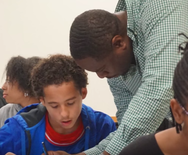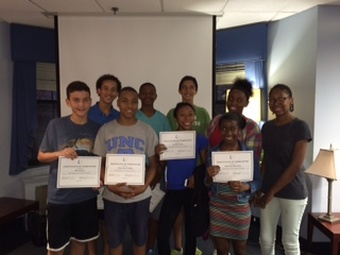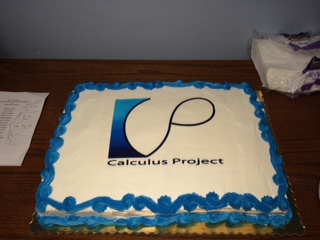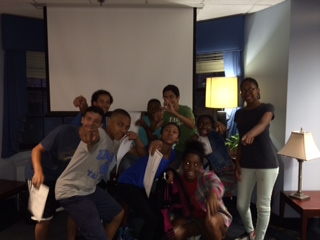
The Calculus Project is unlike any initiative in public education to close the achievement gap in mathematics. Its uniqueness lies in the curriculum comprised of summer enrichment courses in mathematics that run between and parallel to honor and standard level courses in mathematics.
The Calculus Project originates in middle schools as rising students enroll in a mathematics summer enrichment course to preview the upcoming year's math curriculum. The theory is that with summer pre-teaching, our students can better maintain their standing in higher level mathematics courses in middle school. Ultimately, with this additional academic support, students continuing on to high school will have the opportunity to enroll in Calculus Honors during their senior year.
Calculus serves as a gate-keeper course to STEM disciplines. Unfortunately, students who do not successfully complete a Calculus course in high school face greater challenges entering STEM academic disciplines than students who do complete Calculus or Advanced Placement Calculus (AP Calculus) in high school. The odds of gaining acceptance into a competitive college are even greater for students enrolled in Calculus. A study conducted by the College Board in 2008 concluded that students who were enrolled in Calculus earned an average score of 611 on the mathematics section of the SAT. The dismal percentage of minority and low income students who enroll in Calculus translates into sparse representation in STEM majors. Further, it diminishes their overall chances to succeed at college.
The enrichment mathematics courses prepare them for the subsequent math class by introducing students to the core mathematical concepts vital to their success in the course. During their freshman year in high school, these students are grouped in the same mathematics sections to foster peer-to-peer collaboration. They also receive tutoring free of charge until they complete Calculus Honors or AP Calculus their senior year.
The YouTube video embedded below showcases some of our middle school students in the 2015 Calculus Project.



 RSS Feed
RSS Feed
